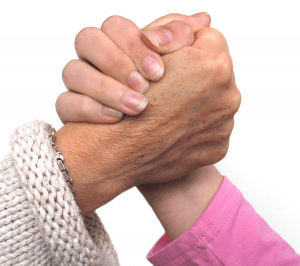 There’s a perception among some that religion is becoming less important in today’s society; that we are living in a secular world where religion and its ideals have been rejected. For us working in aged care, this societal change might make us question whether pastoral care is still relevant to the people we support through their ageing journey.
There’s a perception among some that religion is becoming less important in today’s society; that we are living in a secular world where religion and its ideals have been rejected. For us working in aged care, this societal change might make us question whether pastoral care is still relevant to the people we support through their ageing journey.
We think it is. While trust in religious organisations is declining and increasing numbers of people report as having ‘no religion’ is increasing, religion is still prevalent in Australia. Around half (52%) of Australians are Christian and this increases to 70% among the over 65s. Plus, Hinduism, Sikhism, Islam, and Buddhism are increasingly common. This means we still have a responsibility to meet the religious and spiritual needs of our residents and clients.
What’s more, spirituality is more than religion. Spirituality is the way we seek and express meaning and purpose. It’s the way we experience our connection to the moment, self, others, our world and the significant or sacred. And aged care is more than looking after a person’s physical health. It’s also about nurturing emotional wellbeing, making sure we nourish both body and soul.

It can be particularly helpful during difficult times such as illness and trauma, where chaplains or pastoral carers provide a shoulder to cry on or simply a stress-relief valve. Family and friends are a vital emotional resource, but sometimes it can be more helpful to talk to a third party uninvolved in a situation.
What’s more, as we age, many of us start thinking about the meaning of life and preparing for death. This may include reviewing our life, repairing relationships, giving and seeking forgiveness, discovering peace and hope.
These are weighty issues which a chaplain or pastoral carer can help people to explore, regardless of whether an individual practices a particular religion.
For those aged care residents without any family, chaplains and pastoral carers can provide much-needed friendship, helping them to feel less isolated and more connected. This is vital as loneliness and a lack of meaning or purpose can lead to depression or anxiety.
They can also play an advocacy role, encouraging residents to speak up, or raise residents’ concerns themselves if the resident is uncomfortable or unable to advocate for themselves.
They are also there for the person at the end of life.
As long as people have spiritual and emotional needs, pastoral care will continue to provide much-needed spiritual and emotional support particularly as people age. So is pastoral care still relevant? Absolutely.
References available on request
ED Rev Jeni Goring is the Acting Senior Chaplain at Amana Living

